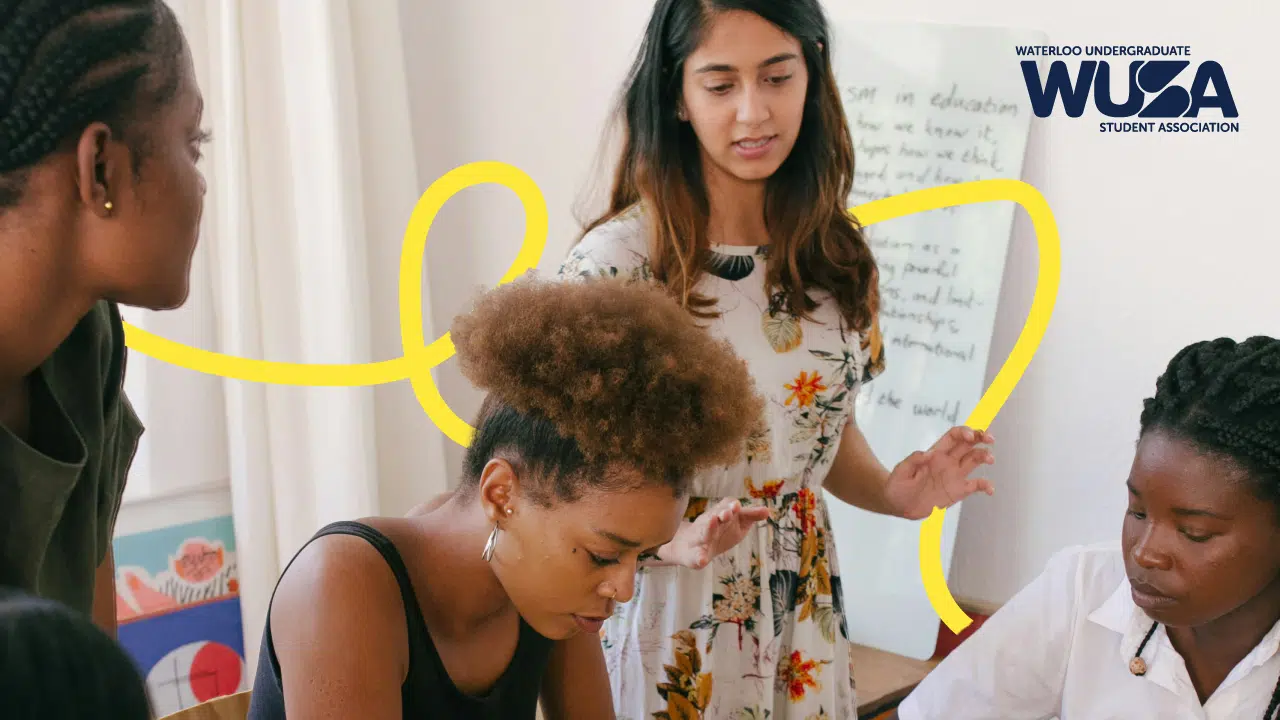WUSA’s Safety Roundtable Recap

On March 3, 2025, WUSA hosted a roundtable for students to talk with the Board of Directors about their experiences with safety on campus! Roughly 30 students attended and had the opportunity to discuss this important topic.
Some of the topics students were asked about included:
- How students ensure their safety on campus;
- Potential services, programs, or resources the University could offer to help students feel safer;
- Physical infrastructure (lighting, pathways, parking lots, etc.), how it impacts perceptions of safety, and how it could be improved;
- Whether students had heard of a “Walk Safe” program and whether they thought it would be feasible at Waterloo;
- Feelings of safety around freedom of expression and how different aspects of identity impact those feelings;
- Experiences with Special Constables, how these impacted feelings of safety, and suggestions for improvement.
What We Learned
Students had concerns about ice and snow removal, lighting on campus, and the location of emergency phones. They also mentioned area-specific issues, like the pathways at United College and the lack of cellphone service in RCH.
There was a focus on overall feelings regarding navigating campus. Students mentioned the challenges of navigating campus, especially at night, when bridges and tunnels are closed. These closures often force them to take less populated routes, which can make them feel less safe. Students also identified areas on the perimeter of campus that feel unsafe, like University Plaza and some bus stops.
When asked about the actions they take to ensure their own safety on campus, many students identified solutions that related to their specific concerns. For example, many students chose to stick to well-lit pathways, or pathways they were familiar with, when walking on campus alone at night. Students also identified that they preferred to walk with a buddy or take routes they knew would be busy.
Safety is, of course, more than just freedom from physical harm and includes feelings of acceptance, inclusion, and belonging. We asked students if they felt safe expressing who they truly are and their opinions on campus. Some students shared that in their experience, the Waterloo community is generally open and diverse, but there is a lack of ability to talk about world events or political issues. Other students shared experiences related to neurodivergence, gender, and discrimination which have impacted how they feel on campus.
When asked about Special Constable interactions, most students indicated they hadn’t had much involvement aside from seeing them around campus. While some students felt having Special Constables around made them feel safer, other students did not feel like they contribute to feelings of safety. A few students mentioned that Special Constables could implement face-to-face engagement with students to help students better understand what they do. Questions about Special Constables were also included in the February 2025 Representative Survey Platform (RSP) survey, and we anticipate learning more from that data.
Where Do We Go from Here?
Since the roundtable, student feedback has been compiled and shared with our Advocacy team, who are working on drafting our Advocacy Position Statement on safety. This eventually will join our library of existing statements, which outline student perspectives on key issues. These student-written, research-informed statements provide an invaluable roadmap for WUSA’s advocacy, help inform our decision making and direct our push for meaningful change.
Learn more about WUSA’s advocacy work at Advocacy – Waterloo Undergraduate Student Association.
Learn more about the feedback we’ve gathered on student safety at Representative Survey Platform (RSP): Student Safety Report – Waterloo Undergraduate Student Association.
Published: Tuesday, April 22, 2025
